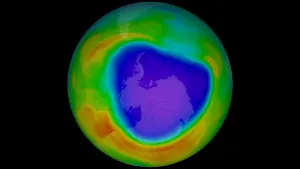
Study: 'Surprising' number of people want vegan pets
A new study out of Ontario's University of Guelph has yielded some surprising results.
A new study out of southern Ontario's University of Guelph veterinary college has found a 'surprising' number of people who would like to feed their pet an exclusively-vegan diet.
The study, published in the journal PLOS One, says that 35 per cent of the 3,673 pet owners surveyed expressed interest in moving their pets away from meat-based foods.
The survey was conducted online in collaboration with colleagues in New Zealand. Participants were based all over the world.
More than half (55 per cent) of the 'pro vegan' respondents said before they made the switch they would need to ensure a vegan diet would meet their pets' nutritional needs and have the blessing of their veterinarian.
Spring is here! Check theweathernetwork.com on Wednesday, March 20 to see what the season has ahead, plus get an EXCLUSIVE sneak peek at Summer 2019!
Lead author Dr. Sarah Dodd said the findings were "much higher" than expected.
"This study shows there is a clear need for further research in this area," she added.
WHY ARE PEOPLE AND PETS GOING VEGAN?
Dr. Dodd says there are multiple reasons, including potential health benefits.
But climate change is also commonly cited.
"There is ... growing concern about the environmental impact of animal agriculture," Dr. Dodd said in a statement.
MEAT CONSUMPTION IN OVERALL DECLINE
Neilsen statistics suggest about 2 per cent of Canadians identify as vegan and about 6 per cent as vegetarian, but meat consumption is declining overall -- even among carnivores.
Over the past decade, beef consumption has shrunk by about 18 per cent and pork by 11 per cent according to Neilsen, while demand for plant-based food is on the rise.
Consumers seem to be in search of more sustainable products.
One common critique of meat, according to University of Guelph associate professor Michael Von Massaw, revolves around the emissions released by livestock.
Cows have been singled out as a contributor to climate change due to the amount of water and land required to house the animals, inspiring some consumers to scale back their consumption.










